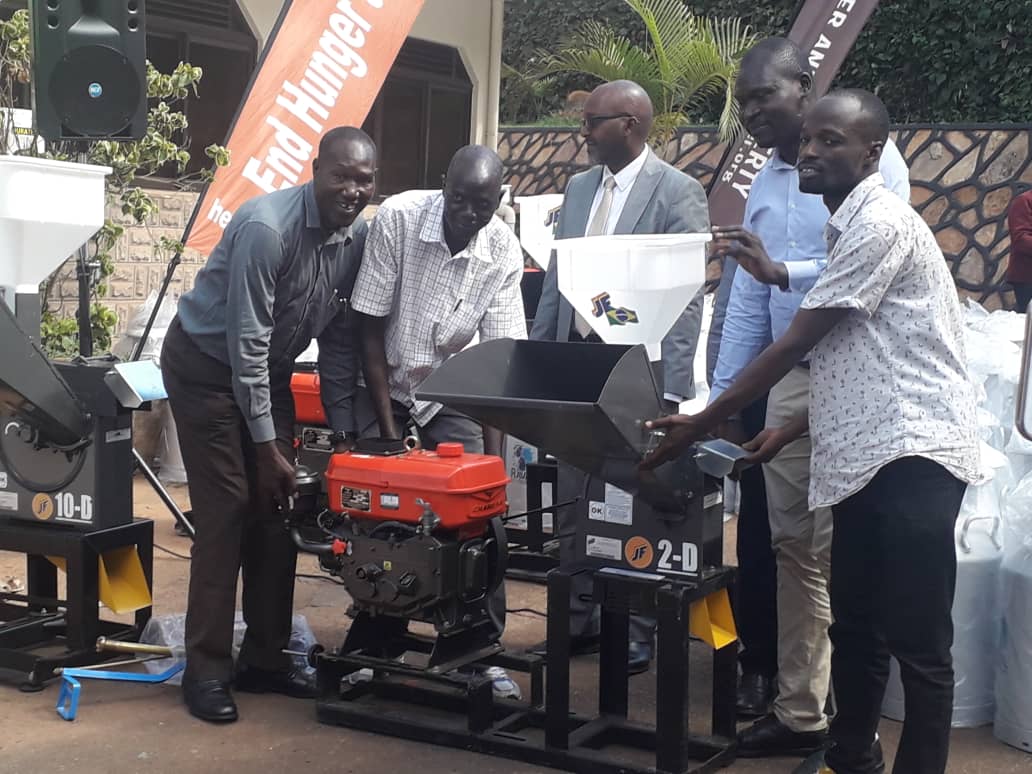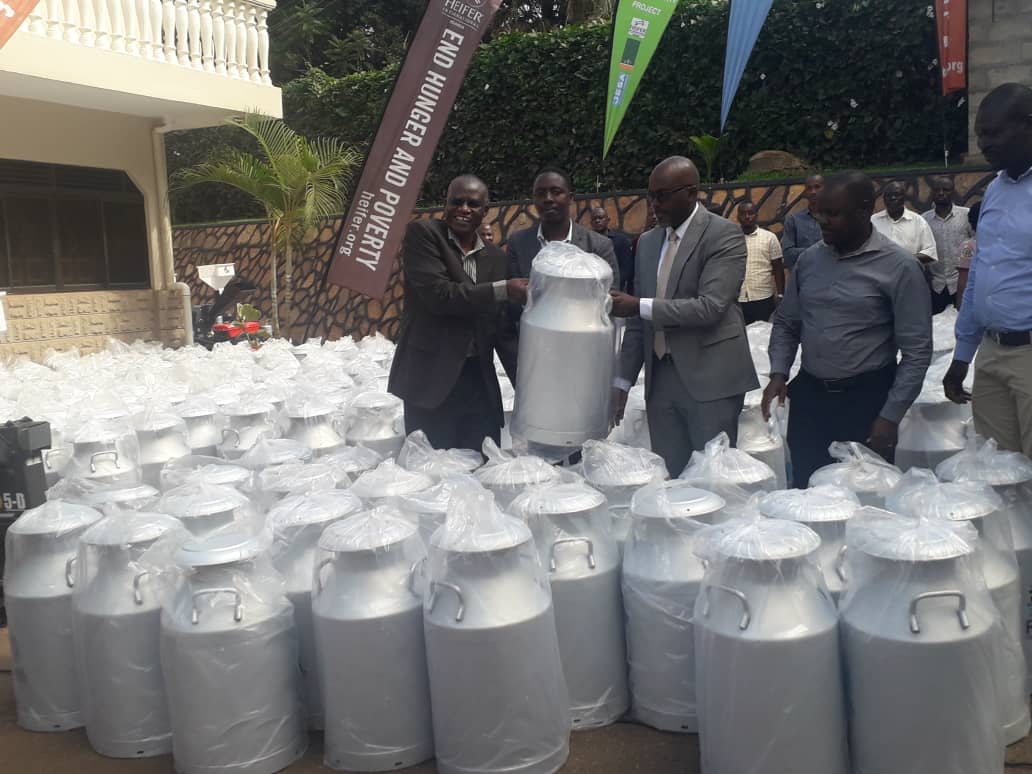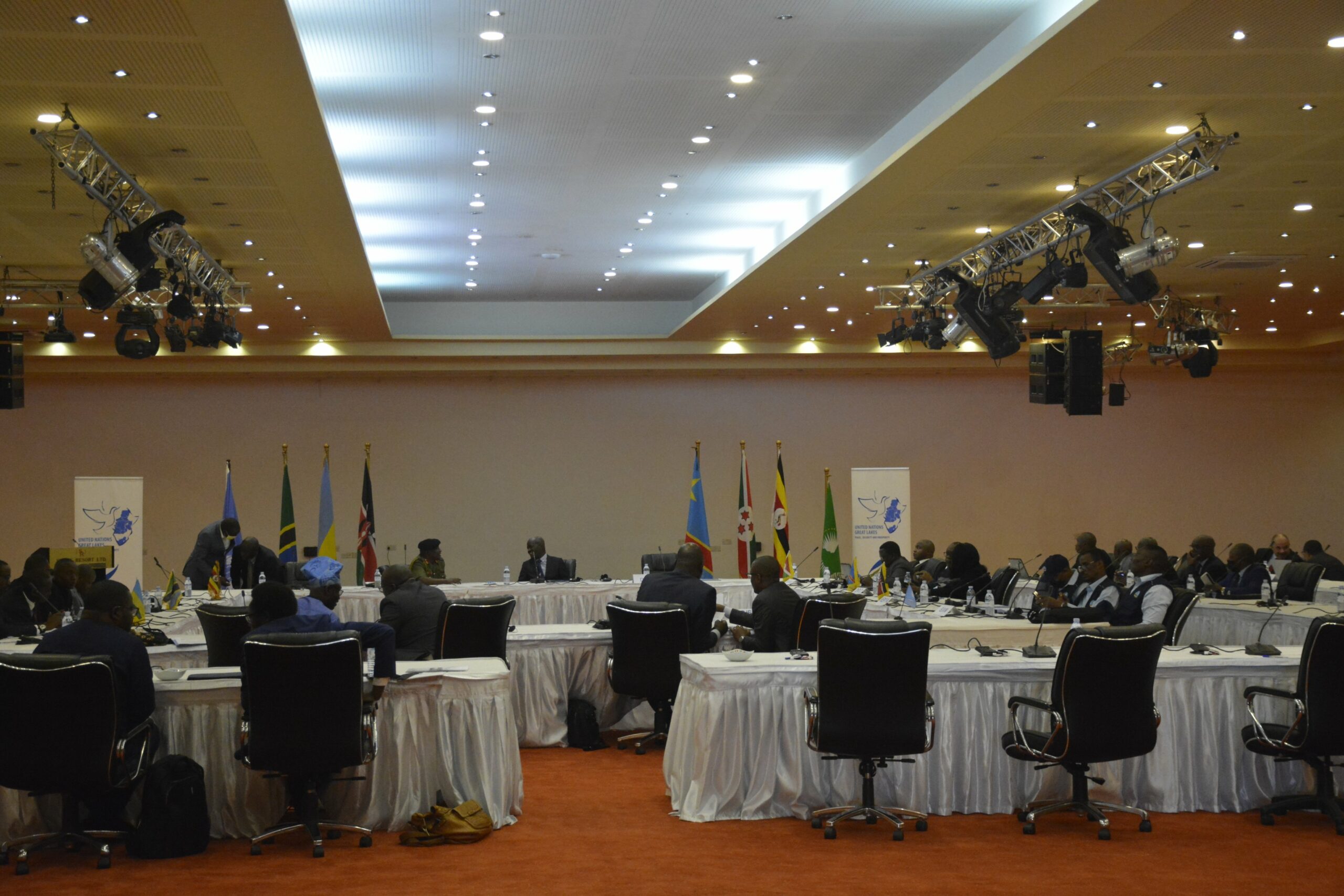Heifer International Uganda in partnership with Agricultural Business Initiative (aBi Development) has handed over 500 milk cans and 29 chaff cutters to dairy cooperatives.
Speaking at the launch of the Milk Can revolving fund ceremony on Monday at Heifer international headquarters in Kampala, John Ssenyonga the Programs Director from Heifer who represented the company’s country director noted that the revolving fund is meant to enable farmers to access quality and affordable milk cans.
Ssenyonga noted that Heifer will support these cooperatives to grow the product with their Savings and Credit Cooperatives (SACCOs) working with dairy commercial input suppliers like Kahil.
“It’s important to note that, during the last two years, COVID-19 market interruptions have diminished demand, increased spoilage, increased local market selling, and raised prices for inputs. These challenges are in addition to inaccessible extension and advisory services, and non-tariff barriers for dairy exports, among others. We appreciate government efforts through ADAP to strengthen mechanisms for improving the quality of milk and milk products in Uganda,” he said.
Ssenyonga also cautioned the farmers that with the increasing climate change there is a need to adopt production enhancement and quality management practices to maximize revenue in dairy farming.
“Assuring milk quality translates into secured markets and sustainable incomes. The milk cans will be an addition to the milk hygiene and handling pieces of training, the project has been conducted through the CAVEs”.
“We appreciate the collaboration with Accelerate Dairy Production and Productivity (ADAP) and JESA in building the capacity of farmers in improving milk quality. We are happy to work together to think through this business model to scale up accessibility to milk cans as part of the effort for attracting premium prices for quality milk and milk products. We appreciate your responsiveness and willingness to co-finance these investments with us. As we launch this revolving fund for milk cans, we hope that you will manage it efficiently, like other business ventures, you’re currently running. We expect the fund to grow further and reach other dairy farmers and milk transporters beyond your membership,” he said.

Silver Turyahikayo- Head of Procurement and Extension Department from Jesa noted that giving dairy cooperatives Milk cans is yet another milestone towards enabling farmers to access better equipment to facilitate them in transporting and delivering milk in the recommended food-grade aluminium cans. Which will enhance their ability to produce and deliver good quality milk to the market.
“As a country, our total milk production capacity has increased from 2.5 billion litres in 2018 to approximately 2.82 billion litres to date. The total installed capacity in Mid-western where the ADAP project is operating is 197,800 litres of which 150,700 litres installed capacity is currently directly linked and supplying JESA Farm dairy Ltd. And further through funding from Shared Wealth Ventures (SWV) five more cooperatives are being supported and an installed capacity of 25,000 litres is going to be added onto our supply chain by end of 2022,” he said.
Turyahikayo assured farmers of the ready market since Jesa is a partner in the ongoing campaign of dairy value chain transformation as well as a market facilitator through the provision of the market for all the milk that is produced by all the cooperative groups that are being supported under this partnership.
Samson A. Ampulira, Director of technical services at Dairy Development Authority who represented his Executive Director also urged heads of the cooperative to consider using the milk cans as one of the ways to promote the Milk value chain.
“As the leaders of the development of the dairy sector in the country, we want to appreciate all of you for contributing to this journey, such initiatives will enable the milk sector to reduce the sale of raw milk and it will enable more milk to go through processing.”
Ampulira added that embracing the usage of modern milk equipment such as Milk cans will help in ensuring the quality of milk and also it is one of the measures to protect consumers of the milk.
“We need to make sure that the milk sold at the market is good and safe for consumption. I thank Heifer and all other partners for the initiatives ensured to see that there is a value chain in Milk production in Uganda.”
Over 21 dairy cooperatives received milk cans, some received 10 while others received 50 cans. Each Milk can costs Shs335000, and they are supposed to sell them to their members so that they can be able to restock. The revolving fund itself is close to Shs210m.
Meanwhile, the initiative is one of the three years (2020-2022) dairy value chain projects called “The Accelerate Dairy Production and Productivity (ADAP)” being supported by Heifer International Uganda with support from aBi Developments Ltd and JESA Farm Dairy Ltd.
The project is being implemented using a market facilitation approach with an aim to increase dairy productivity, access to services, and markets for 3,500 smallholder dairy farmers in seven Districts (Kayunga, Kiboga, Kyankwanzi, Mityana, Nakaseke, Nakasongola and Wakiso) of the Central Uganda Milk Shed.
Its main goal is to improve the income and sustainability of 3500 farmers and processors through improved productivity and quality of milk among dairy farmers in the Central Uganda milk shed.
Do you have a story in your community or an opinion to share with us: Email us at Submit an Article









